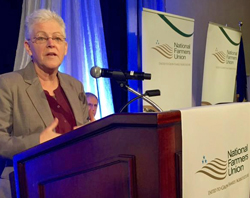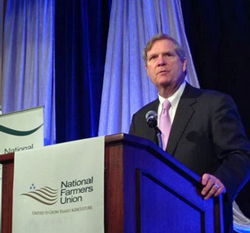 The Urban Air Initiative is challenging the federal government’s models on ethanol emissions from automobiles. This news release from the group says it has filed a new petition with the Environmental Protection Agency challenging the EPA’s Motor Fuel Emission Simulator model, which it says “wrongly blames ethanol for creating harmful tailpipe emissions.”
The Urban Air Initiative is challenging the federal government’s models on ethanol emissions from automobiles. This news release from the group says it has filed a new petition with the Environmental Protection Agency challenging the EPA’s Motor Fuel Emission Simulator model, which it says “wrongly blames ethanol for creating harmful tailpipe emissions.”
One of the biggest factors currently holding domestically produced ethanol back from reaching its full potential is bad information. This includes focused misinformation campaigns like the tactics used by big oil for years and bad computer modeling basing assessments on erroneous or inaccurate information.
“Many Americans are not aware of the very real and dangerous consequences of our dependence on foreign oil,” said Michigan farmer Jeff Sandborn, who is chairman of the NCGA Ethanol Committee. “Much of the time the focus has been on jobs and ethanol’s economic contributions, but increasingly the urban public is looking at the dangers related to the pollutants in gasoline. Ethanol reduces carbon and these toxic compounds while providing the higher octane modern engines need.”
The EPA’s study and resulting model obscures the fact that “blending ethanol into ordinary gasoline reduces harmful emissions produced when gasoline combusts in an engine,” according to the group’s petition.
EPA’s study, in an effort to look at optimal temperatures and a variety of blends, results in findings that increasing ethanol can be associated with increasing emissions, the petition said. “This conclusion is misleading at best,” the group said, arguing that it ignores real-world factors in burning fuel. Other studies have found that increasing the amount of ethanol in fuels reduces emissions.
The group says this model in question underlies a number of key issues regarding EPA and states’ treatment of ethanol, including state implementation plans to meet a variety of air quality standards.











